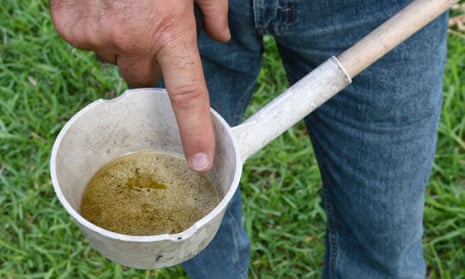Florida and national health officials reported the first local transmission of the Zika virus in a US state on Friday, as the state began an “aggressive” investigation and federal authorities short on funding braced for a health crisis.
Governor Rick Scott reported on Friday morning that four people in southern Florida probably contracted the virus through local mosquito bites, even though no insect trapped and tested in the state has proven positive for the virus so far.
“This morning we learned that four people in our state likely have the Zika virus as a result of a mosquito bite. This means Florida has become the first state in our nation to have local transmission,” Scott said.
Tom Frieden, the director of the Centers for Disease Control and Prevention, said: “These are the first cases of locally transmitted Zika virus in the continental United States.” Speaking at a press conference on Friday, he added: “As we have anticipated, Zika is now here.”
Although there have been more than 1,600 cases of the virus confirmed by health officials in nearly all 50 states, every patient save the four reports in Florida contracted the disease either traveling abroad or through sexual transmission. In Puerto Rico, there are more than 4,500 cases of the virus, virtually all contracted through mosquitos.
As many as 50 pregnant women a day are affected on the US territory, according to the CDC. “This is a silent epidemic that is rapidly spreading through Puerto Rico,” Frieden said.
The Florida report followed an announcement on Thursday that blood donations were suspended in the affected area until all current samples could be tested.
Two of the cases suspected of local transmission were in Miami-Dade County, and two were in Broward County, Scott said. The patients included one women and three men, and none has needed hospitalization.
Health officials believe that the infections occurred in a very small area just north of downtown Miami, of about a square mile. Officials are now going door to door in the area offering to test the public, and Scott said that they would be “aggressively testing people”.
“While no mosquitoes trapped tested positive for the Zika virus, the department believes these cases were likely transmitted through infected mosquitoes in this area,” the Florida health department said in a statement.
“All the evidence we have seen indicates that this is mosquito-borne transmission that occurred several weeks ago in several blocks in Miami,” Frieden added.
Earlier in July, authorities began investigating the possible first local transmission of Zika, but Scott’s near-confirmation on Friday amounted to a serious development of the feared health crisis. There have been 386 cases of Zika reported in Florida so far, mostly in Miami-Dade and Broward counties. Fifty-five pregnant women have been affected.
“Florida is taking an aggressive approach,” Scott said. “We have worked hard to stay ahead of the spread of Zika and prepare for the worst.”
Scott emphasized that there had been no reported cases of local transmission of Zika in central parts of the state. The Orlando area was teeming with an influx of tourists , attending the cluster of theme parks in the area such as Disney World, Universal Studios and SeaWorld. Officials fear local transmission because local mosquitos could spread the disease far more rapidly than isolated travel or sex.
Experts in the UK recently urged expectant mothers to avoid travel to the upcoming Olympics in Brazil, which has been hard struck by the disease, and parts of the US, including Florida.
There is no treatment or preventive vaccine for Zika. The disease produces mild symptoms for most, such as headache, feverishness and red eyes, and 80% of healthy people who become infected suffer no symptoms.
But for expectant mothers, infection with the Zika virus can lead to infants born with serious brain defects and developmental abnormalities, especially an abnormally small head in a condition called microcephaly.
The CDC has also warned of likely local outbreaks in southern coastal states as the summer heats up, with poor communities in Florida, Texas and Louisiana on the frontline. Texas reported the first case of Zika being transmitted within the US in February, in a case believed to have been passed on through sex.
“We learn more about Zika each day but we recognize that the unknown can be scary, especially for pregnant women,” Florida surgeon general Celeste Philip said on Friday. “We’re committed to sharing as much as we can as soon as we can.”
Scott advised women in the affected area of Miami-Dade and Broward counties who are pregnant or trying to become pregnant to consult their OB-GYN for advice and Zika prevention kits.
The governor also ordered emergency funding for testing people, screening donated blood in the affected counties, and for testing mosquitos and reducing their breeding during sweltering summer months.
Florida has a good record combating similar diseases, such as dengue and chikungunya, but Scott has not yet invited in the CDC’s wider emergency response team of experts on infectious diseases and the complex logistics to combat them, according to the Florida health department spokeswoman Mara Gambineri.
And a bitterly divided Congress failed last month to pass $1.1bn in federal funding measures to combat the Zika virus, with Texas senator John Cornyn s explaining Republican resistance by saying: “We want to make sure we’re not writing blank checks.”
The Florida senator Marco Rubio has bucked his party’s line and pleaded for funding. Earlier this month, he called the Zika threat a “full-blown health crisis” for the US, allying himself with California Senator Barbara Boxer, a Democrat, who said: “We need to act now.”
